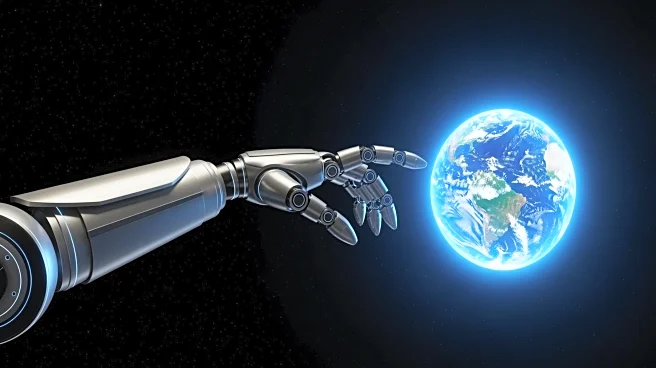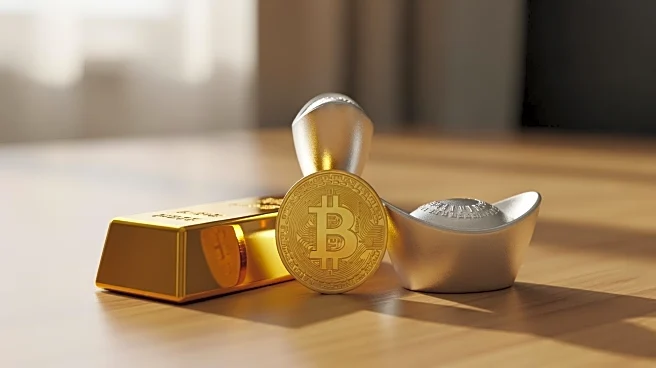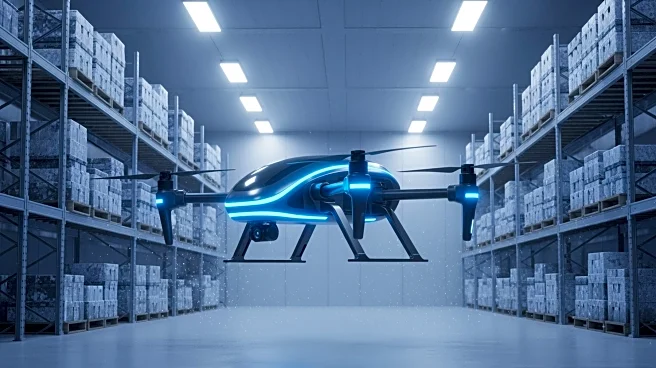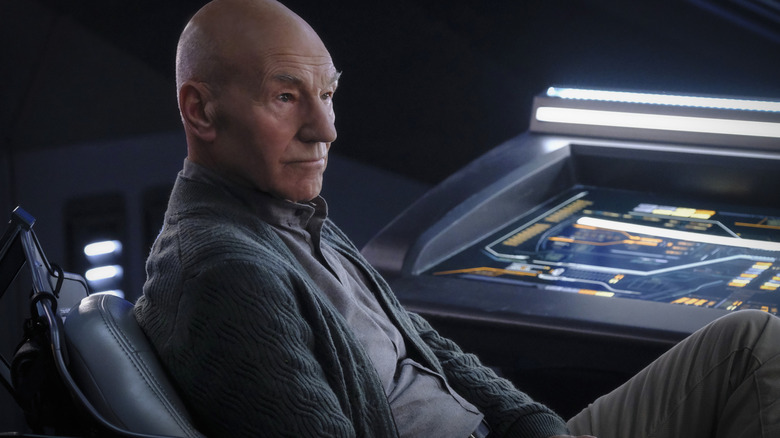
CBS All Access, later re-named Paramount+, launched in 2017 with the debut of "Star Trek: Discovery" in 2017. This marked a new era for "Star Trek," as the shows were going to be overseen by an all-new
creative team, unconnected with the people who produced "Star Trek" from 1987 to 2005. Alex Kurtzman was the new head honcho of the franchise, and he had only entered the scene with his screenplay for the 2009 "Star Trek" feature film reboot. The ethos for the new "Star Trek" shows was, as trends would dictate, very different. Not only were the special effects slicker, but episodic storytelling was a thing of the past. New "Trek" shows were going to adhere to the "one-season, one-story" writing philosophy, allowing for broader tales of spatial derring-do.
Kurtzman, also a writer of blockbusters like "Mission: Impossible III," "Transformers: Revenge of the Fallen," and "The Amazing Spider-Man 2," was fond of violent stories and high-octane action. He pushed "Star Trek" toward long-form mystery plots punctuated by gun battles and murder. We can argue all day as to whether or not Kurtzman's vision of "Star Trek" was something Gene Roddenberry would have enjoyed, but it was the direction Kurtzman wanted to take.
This was especially clear with the 2020 show "Star Trek: Picard," a series that caught up with Captain Picard (Patrick Stewart) about 20 years after the events of "Star Trek: Nemesis." "Picard" was a show of oblique mysteries, combat, violence, and gigantic emotional beats. The ordinarily taciturn Picard became embroiled in silly mystery plots, often involving androids, the Borg, time travel, and the fate of the galaxy. Picard was no longer a starship captain, but a freelance private citizen, tying up loose ends from his past.
This is a fine idea for a series, but it wasn't always great in execution. Luckily, the show improved -- if only slightly -- over its three seasons. Below is a ranking of those three seasons, presented from worst to best.
Read more: 5 Star Trek Characters Who Disappeared Without Any Reason
Season 1 (2020)
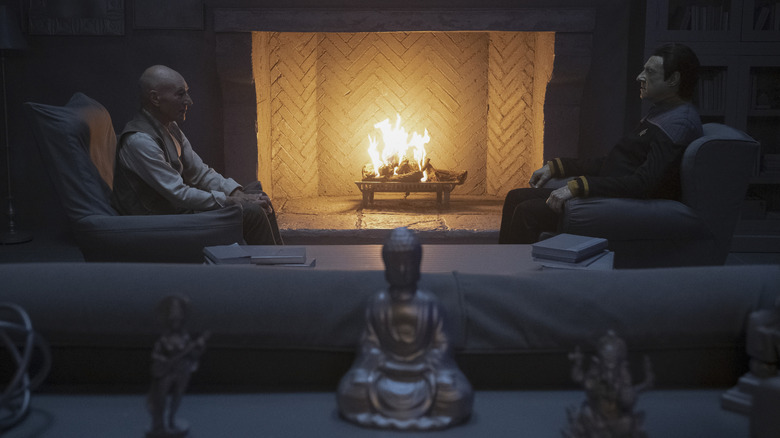
I could write many thousands of words as to why the first season of "Star Trek: Picard" didn't work. It starts with a concept that violates a lot of "Star Trek" principles, then proceeds to delve into a mystery plot that makes utterly no sense upon reflection. When we catch up with Picard, he has resigned from Starfleet in horror, having witnessed the organization actively deny aid to the ailing Romulan people whose planet had been blown up (by Spock, incidentally, in the 2009 "Star Trek" film). Starfleet, it seems, has become less tolerant. This would have been fine if Picard restored tolerance by the end of the story, but the plot spins off, instead, into a weird plot about androids.
In the future of "Picard," androids have been banned after a murderous droid uprising. This spelled trouble for the androids that already exist, and many cyberneticists have gone into hiding. It seems, though, that the android uprising was staged by a bitter Romulan spy group that believes androids will come to replace organic life. The spy group -- sigh -- received a vision from a mysterious magical ring, declaring that androids would open a portal to another dimension and unleash a robotic Cthulhu monster. The plot is also tied to a mysterious pair of twins, played by Isa Briones, who have something to do with Data (Brent Spiner), Picard's deceased android officer from 20 years before. Picard and a new cadre of friends spend the season unraveling this mystery.
Seven of Nine (Jeri Ryan) from "Star Trek: Voyager" also returns, but she is now a murderous, bounty-hunting badass. There are a few other "Star Trek: The Next Generation" cameos as well, including Spiner, Jonathan Frakes, and Marina Sirtis. Picard meets Data in a virtual dreamspace, a common setting on "Picard"; there's a dreamspace in every season. Picard ends the season having his consciousness shunted into an android body.
The first season is confusing and dumb. Nothing feels thought through. It's all action and no thought, a bad way to start the show.
Season 2 (2022)
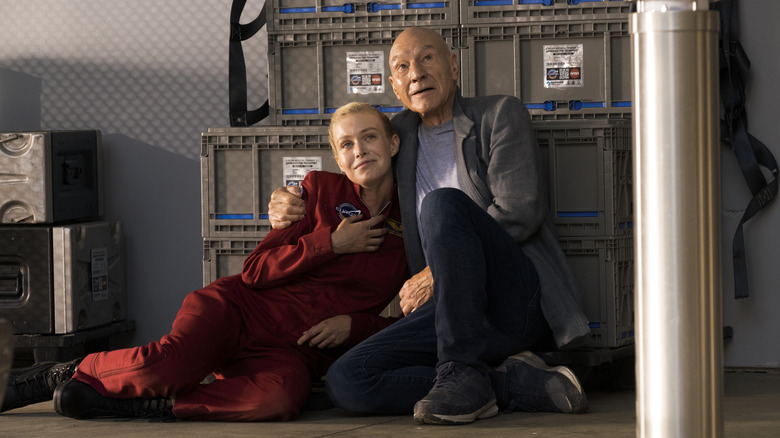
No "Star Trek" show has begun with its best foot forward, however, with even some of the best shows in the franchise boasting some really terrible first seasons. Perhaps "Picard" was just following suit. And for a second, it looked like "Picard" had improved with its second season in 2022. The plot involved the return of Q (John De Lancie), the impish deity that gave Picard so much trouble on "Star Trek: The Next Generation." Q teleports Picard, Seven, and the other new "Picard" cast members into an evil parallel universe where Earth has become a genocidal empire, successful in killing off all the other species in the galaxy. It's not quite the same as the notorious Mirror Universe, but it's fun nonetheless.
Picard and his friends figure that the universe went bad sometime in the past, and they go back in time to the year 2024 to find out when everything went wrong. So far, so good. This premise is classic "Star Trek." They find that the evil began with an ancestor of Data's creator, a geneticist also played by Brent Spiner.
The problem is, the writing becomes really oblique really quickly. Picard meets a young Guinan (Ito Aghayere) who has a magical bottle that can summon Q (!), and Orla Brady appears as a magical cosmic overseer called a Supervisor. There's also a subplot of Picard exploring his childhood trauma in -- you guessed it -- a virtual dreamspace, and it unveils nothing about the character.
Q ends the season by giving Picard a teary farewell hug. At least there was a fun subplot wherein Dr. Jurati (Alison Pill) is assimilated by a wicked Borg queen (Annie Wersching). It's a silly -- Dr. Jurati is seen eating car parts -- but it at least offers some camp levity to a turgid series.
The second season started promisingly, but tripped over its own feet hard. Wil Wheaton has a cameo.
Season 3 (2023)
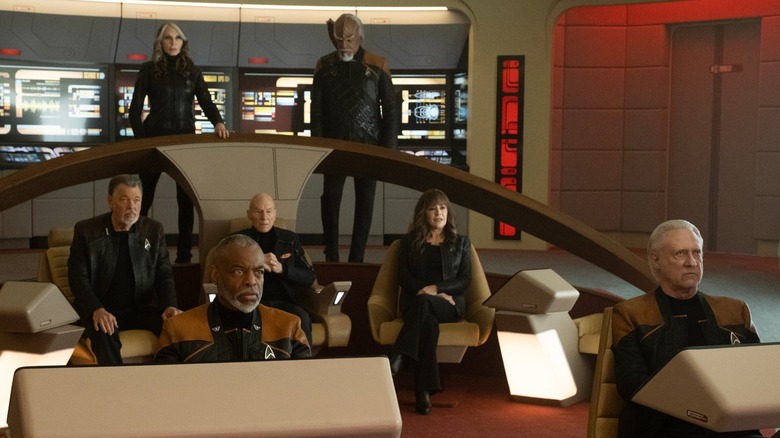
The third season of "Picard" was planned as its last, and the showrunners felt the need to finally give the fans what they wanted. Writer Terry Matalas took over the show, and made a slick fan service season that mostly works. Mostly.
Season 3 is a reunion of sorts wherein Trekkies were allowed to catch up on the main cast members of "Star Trek: The Next Generation," exploring where they've all been for the last 20 years. Dr. Crusher (Gates McFadden) has been smuggling medicine to planets in need. Worf (Michael Dorn) took a job as a spy for Starfleet. Geordi (LeVar Burton) has become the curator of a starship museum. Riker and Troi (Jonathan Frakes and Marina Sirtis) are trying to live a painful married life after the death of their child. And Data (Brent Spiner) has been officially recreated as a new amalgam android, now kept at a Starfleet black site.
The plot revolves around Jack Crusher (Ed Speleers), the adult son of Picard and Crusher, and the mysterious Changeling Vadic (Amanda Plummer), who wants to kidnap him for nefarious purposes. The plot is intriguing throughout the season, and Vadic is a fun supervillain. The series is also very careful about presenting its TNG guest stars. Trekkies are allowed to absorb where the characters have been in their lives without falling into treacly nostalgia.
The season ends badly, however. Unable to resist nostalgia, the showrunners brought back the previously destroyed Enterprise-D and used it as a fast-moving, high-octane battleship. The crew is wistful to see it again, although I certainly wouldn't be wistful seeing the retail outlet where I worked 20 years ago. The villains, it is revealed, were the Borg this whole time, which is a very tired idea; the Borg were involved in the previous two seasons, and too many other "Star Trek" stories to count.
The climax of "Picard" was disappointing, but the storytelling was first-rate up until then. Season 3 is, I think we can all agree, "the good one."
If you're looking for the easiest way to keep up with all the major movie and TV news, why not sign up to our free newsletter?
Read the original article on SlashFilm.
